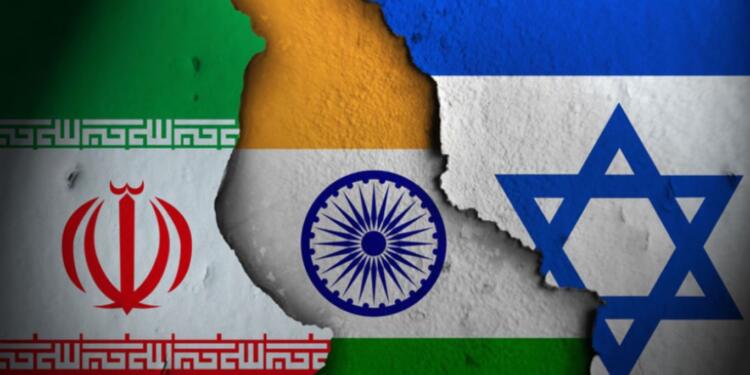The most chaotic place right now on earth is undoubtedly the Middle East. What started on October 7 in Israel has now transcended the borders of multiple nations.
Reports of Rockets, missiles, aircraft strikes, and drone strikes, have become a norm in this region. While the war had been dragging on for months, the Middle East conflict escalated further when one day Ismail Haniyeh, the Hamas chief and orchestrator of October 7 was neutralized in Tehran. Just months after that, Nasrallah and his top Hezbollah commanders were also eliminated.
But on Tuesday, the patron of these organisations, Iran blazed missiles over the Israeli sky, in one of the largest attacks. As the escalatory spiral continues to revolve, it will certainly have effects on every country, whether directly involved or not. India too will have to bear its impact.
It is pretty much clear that Israel will retaliate to the Iranian missile attacks. The eventuality of this new front may not be a full scale war but it will definitely have a bearing on India.
The most easily visible hit that India will face is oil. Currently, there are two prominent crude benchmarks – Brent and WTI. India purchases oil from OPEC countries which use Brent crude benchmark.
So, whether India purchases oil from Russia or from Middle Eastern countries, disruptions in this region will augment the price. Incidentally, the same was witnessed yesterday after Iran launched a barrage of ballistic missiles on Iran.
After the Iranian attack, Brent crude, the global benchmark, climbed above $75 a barrel. This may sound more disheartening that prior to the Iranian attack, crude oil prices were coming down. The domestic rating agency ICRA predicted that the oil companies could save Rs 2-3 per litre. This could have translated into reduced costs for customers in the coming days.
The Middle East conflict could severely impact Chabar Port and IMEEC Corridor
Israel had recently attacked Houthi controlled port in Yemen in the Red Sea, an area which saw massive attacks on commercial ships in the past.
Follow the map and you will find that the entire sea route between the Arabian Sea and Suez Canal is compromised. Every Indian import that crosses through the Suez Canal may become a risky business.
This also takes us to India’s future plans. India has long known the vulnerability of the Suez Canal. After all a chocking point is always a risky route to trade.
So, New Delhi tried to develop an alternative. First, it tried with Chabahar port in Iran. It was a one-shot three-hit game for India.
Suez was bypassed, so was Pakistan and India would get easy access to Europe along with Afghanistan, and Central Asia. But this failed when the US imposed sanctions on Iran and the Taliban took over Afghanistan. Additionally, this will also adversely impact India’s trade with Afghanistan.
In a fresh hope, this May, a contract was signed between both countries, however, the fresh escalations may now jeopardise the efforts made so far.
But as they say always have a plan B! India had the India-Middle East Economic Corridor (IMEEC), a highly sophisticated and let me say daring, road-rail-ship corridor. A route to Europe that could have bypassed Iran too. Through IMEEC, India navigated through the tug of war between the US and Iran.
However, the new escalation may have stuck that too, as Israel is a crucial destination of the project, from where the second leg to Europe would start.
Other bearings of the Middle Eastern crisis
Furthermore, since India enjoys strong diplomatic relations with both Israel and Iran, the warring countries will try to put diplomatic pressure on New Delhi to pick sides. Since India, is the most populous country, the fifth largest economy, the largest democracy, and more importantly a country that enjoys a positive global clout, both Israel and Iran would want India to be on their side, to bag a moral and diplomatic victory.
Another dimension that could take a hit is the Indian diaspora living in both these nations. Since Israel has built a solid defensive infrastructure to protect residents from attacks, the Indian diaspora will relatively feel safer despite the escalating war. However, things could go south for the Indians living in Iran. Taking that eventuality into consideration, New Delhi may chalk out another evacuation plan and set it in motion, as and when needed.
With these complexities, it seems that Indian diplomacy, which is at its best currently…..has been under the test, only difference is….this time the test is tough. But hang tight, there is always a way.

























